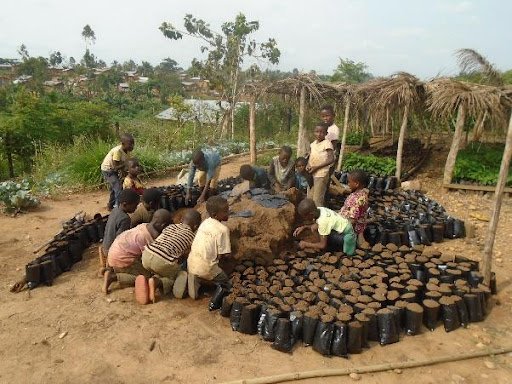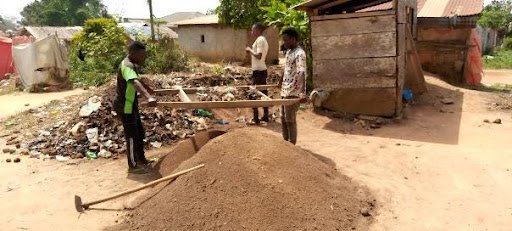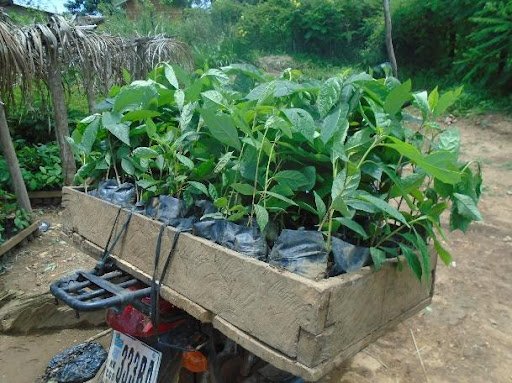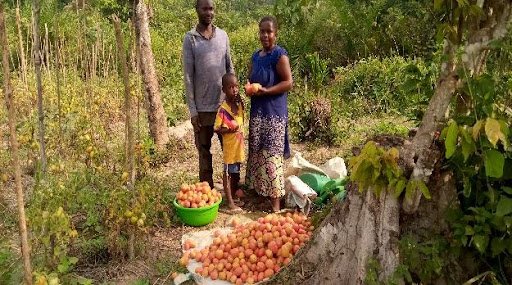Agroforestry is providing food security for communities
Planting Nitrogen-fixing trees within a cassava field.
Our agroforestry team has been busy at work with local farmers collecting produce and seeds while preparing for the upcoming rainy season. Agronomes collected soil from different nurseries to prepare several species of seedlings for the planting seasons and readied fields. The start of the year also encompassed a review and strategic planning for this year’s activities and renovation of the Epulu nursery to better support local communities and the growing program. One hundred and ten vegetable gardens were set up in the region, benefiting 460 households in the first 6 months of the year. These gardens fortify local food security in communities across and surrounding the Reserve. In Mambasa, 540 kg of cabbage, 538 kg of tomato, and 150 kg of leek were produced in five gardens alone, with the primary use of feeding their own families. Surplus produce may be sold locally, generating sustainable income supportive of reduced reliance on forest resources.
OCP's extension in Mambasa recently played host to 28 agronomy students from Bernard LONGO Secondary School. The visit aimed to shed light on the inner workings of our education and agroforestry programs in Mambasa. The guided tour provided an opportunity for students to explore the intricacies of our initiatives, fostering a deeper understanding of conservation, reforestation, and the dissemination of innovative agroforestry techniques. Through such visits, we engage students in memorable learning experiences with local relevance and resources to showcase their benefit to the environment and community at large.
Within the first 6 months of 2023 across our 6 agroforestry sites, our farmers and collaborators have harvested and collected:
3,373 kg of rice
655 kg peanuts
1,145 kg beans
Tomatoes
Pineapples
Sugar cane
And our agroforestry team has distributed:
54,782 tree seedlings (more than halfway to our goal of 100,000 this year!)
6,932 kg of rice seeds
1,886 kg of peanuts seeds
430 kg of beans seeds





